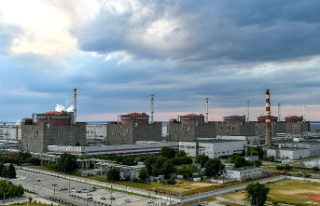Antigua and Barbuda wants to take the "final step" and finally become independent from the British royal family. The news comes just one day after the proclamation of the new King Charles III. These are not the first secessionist tendencies in the Caribbean.
According to the will of the head of government, the Caribbean island state of Antigua and Barbuda should become a republic. Until her death, Queen Elizabeth II was the head of state of the former British colony. King Charles III was confirmed as the new head of state in a ceremony in the capital St. John's on Saturday. But shortly afterwards Prime Minister Gaston Browne told British broadcaster ITV that he wanted to hold a referendum within three years. "This has nothing to do with disrespect for the monarch," Browne said. "It is the final step in completing the circle of independence and becoming a truly sovereign nation."
Antigua and Barbuda has almost 100,000 inhabitants. The island nation became independent in 1981. It is one of 15 states where the British monarch is the head of state. Last year, the island nation of Barbados further south in the Caribbean became a republic. Sandra Mason, who had previously served as Governor General and thus representative of the Queen, became President.
Australia, on the other hand, remains under the influence of the British crown - for now. Out of respect for Queen Elizabeth II, Australian Prime Minister Anthony Albanese is not planning a referendum on the abolition of the monarchy for the time being. Now is the time to pay tribute to the late Queen and not to pursue "issues about our constitution," Albanese told British TV channel Sky News. Rather, it is about showing admiration for the Queen's services "to Australia, the Commonwealth and the world".
Albanese had repeatedly hinted at plans to make Australia a republic. Every Australian must have the opportunity to become head of state, he had said. The Queen's death had fueled discussions about the country's status. In a 1999 referendum, a majority (55 percent) of Australians voted to retain the monarchy.
King Charles III was born in the country on Sunday. officially appointed the new head of state. The corresponding statement was presented at a ceremony in Parliament in the capital Canberra by Governor General David Hurley, as reported by the Australian news agency AAP. There were members of parliament and senators from all political camps. Following the proclamation, the British national anthem was played with the new line "God Save the King"; the flags, which had been set at half-staff, were raised again. Many people had gathered in front of the parliament building to attend the proclamation.
In her capacity as head of state of Australia, British queens or kings are represented in the Commonwealth country by the governor-general. Hurley described Australia as an "unfinished product" which is now entering a new era. "Most Australians did not know a world without Queen Elizabeth II, her death is the end of an era."
Prime Minister Albanese said there was great sadness at the Queen's death. "Queen Elizabeth was admired for her sense of duty, for her commitment to the people of the UK, to the people of the Commonwealth, including Australia, and to the world at large," he said. Today with Charles III. solemnly inaugurated a new head of state. "The Proclamation, the first in my lifetime and the first in the lifetime of most Australians, is a historic event."
In addition, Albanese announced that Australia will be observing a national mourning holiday on September 22nd. Before that, he will travel to England with Governor General Hurley to attend the Queen's state funeral on September 19.
(This article was first published on Sunday, September 11, 2022.)












